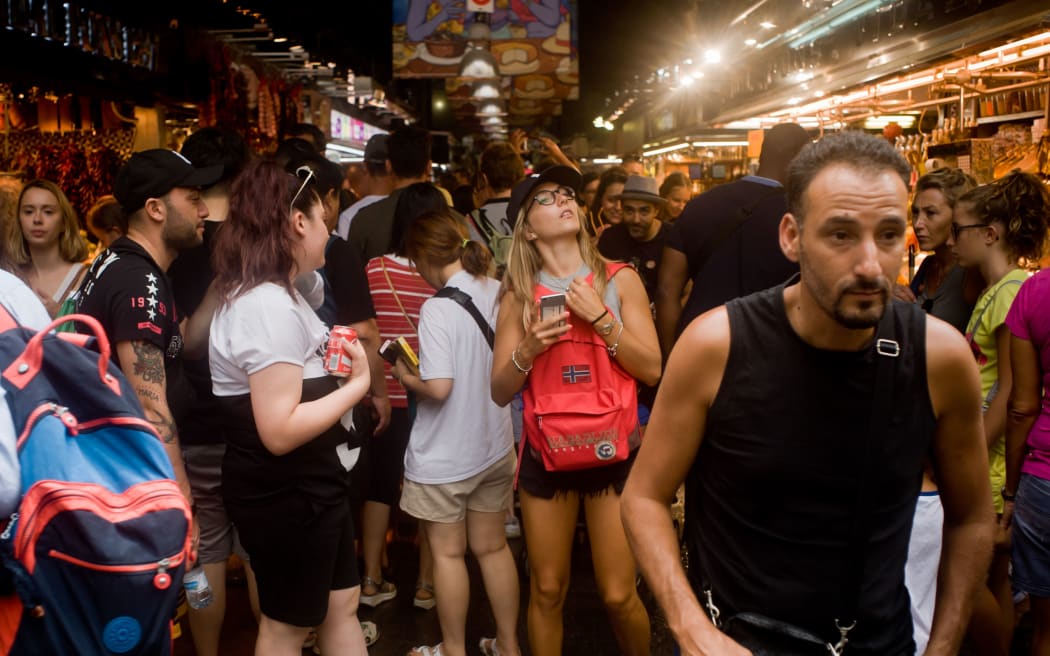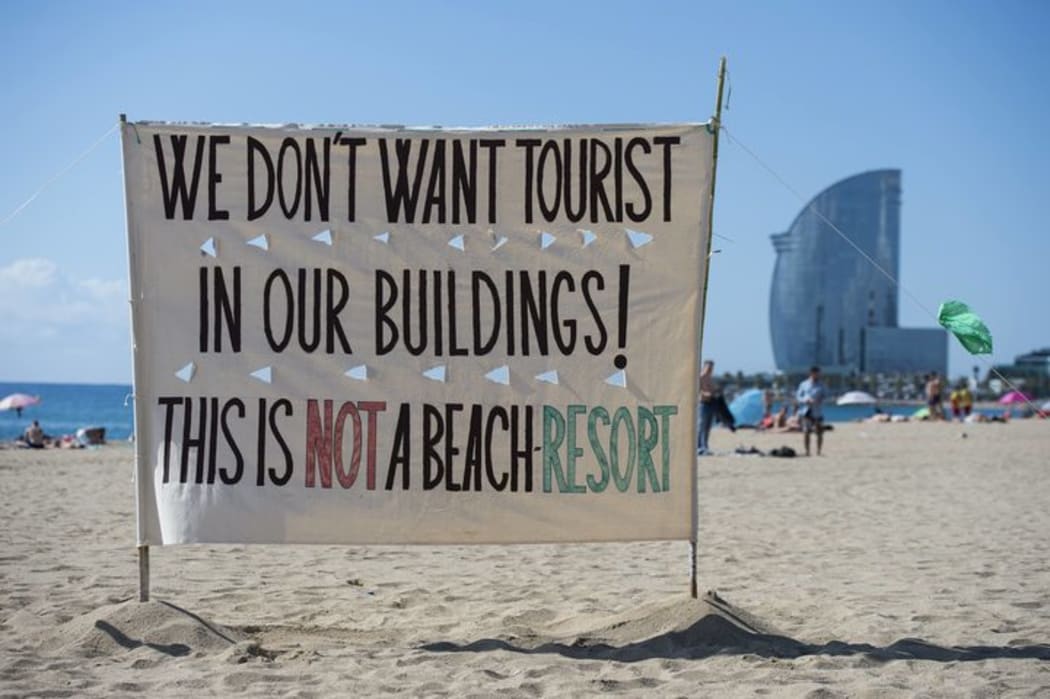A wave of anti-tourism protests is spreading across some of Europe’s most popular holiday destinations.

Tourists visit La Boqueria market in Barcelona. Photo: AFP
The focal point for much of this has been Spain, which had a record 75.6 million tourists last year.
Many Spaniards are growing frustrated by armies of tourists taking over town centres, disrupting the lives of locals and putting a strain on resources, housing and jobs.
Demonstrations have also taken place this year in the Italian cities of Venice, Rome, Milan - as well as Dubrovnik in Croatia and Barcelona in Spain.
Barcelona has some of the most popular attractions in the world including the Sagrada Familia, La Rambla (which was the target of a terrorist attack earlier this month) and the city’s Gothic Quarter.
Marti Cuso is a member of the Neighbourhood Assembly for Sustainable Tourism in Barcelona.
He told Nine to Noon the city began basing its economic model on tourism in 1992 when it hosted the Olympics and the number of tourist visits has been ramping up ever since.

An anti-tourism banner on La Barceloneta beach during a demonstration against "drunken tourism" earlier this month. Photo: AFP
“We think our city … has surpassed the limit, we are a small city surrounded by mountains and cannot grow anymore. We have 1.5 [million] residents but we receive 30m tourists a year, Cuso says.
“This is not sustainable in terms of quantity.”
His group has held protests about housing affordability, with tourists staying in accommodation listed on Airbnb pushing up prices for locals, and against the number of cruise ship visits which he says causes pollution and overcrowding.
Most of the flats listed in on Airbnb in Barcelona are owned by companies that buy properties specifically to list them on the site, Cuso says.
“They can earn three of four times more than [letting] them in the residential market.”
He says the city’s administration needs to control tourist numbers but over the longer term there needs to be more done to promote other kinds of industries in the region.
“Reducing the local weight of tourism and promoting other economies is more sustainable because tourism generates jobs but they are precarious, temporary," Cuso says.
“And of course it’s not sustainable for the people living in the city and their rights.
“We are not against tourism, we are against the unsustainable weight it has been given.”

